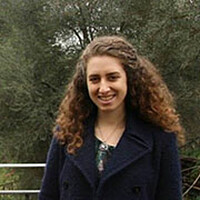Why new building in Israeli settlements draws ire
Loading...
On Sunday, the Israeli government pushed forward plans to build some 560 housing units in the West Bank settlement of Ma'ale Adumim and 240 housing units in East Jerusalem, according to United Nations Secretary-General Ban Ki-Moon.
The news comes after the “Quartet” of Middle East peace mediators – the United States, Russia, the European Union, and the United Nations – released a report condemning illicit settlement.
Israeli settlement in the West Bank is directly addressed in the report. “Israel should cease the policy of settlement construction and expansion, designating land for exclusive Israeli use and denying Palestinian development,” the report recommends.
On July 4 and 5, the United Nations and United States denounced Israel’s advancement of these building plans. “If it’s true, this report would be the latest step in what seems to be a systematic process of land seizures, settlement expansions, and legalizations of outposts that is fundamentally undermining the prospects for a two-state solution,” Mr. Ban said in a statement.
Ban also reiterated “that settlements are illegal under international law” and urged “the Government of Israel to halt and reverse such decisions in the interest of peace and a just final status agreement,” in his statement.
“As the Quartet report highlights, since the beginning of the Oslo process in 1993, the population of settlements has more than doubled, with a threefold increase in Area C alone,” said John Kirby, US Assistant Secretary for Public Affairs. “Currently, there are at least 570,000 Israeli settlers living in the West Bank and East Jerusalem. Moreover, approximately 100 settlement outposts in Area C have been built without formal Israeli government approval, making them illegal even under Israeli law.”
“Again, as the Quartet report makes clear, these actions risk entrenching a one-state reality and raise serious questions about Israel’s long-term intentions,” Mr. Kirby said.
The Quartet’s report also questions Israel’s goals and notes that, “the transfer of greater powers and responsibilities to Palestinian civil authority in Area C contemplated by commitments in prior agreements has effectively been stopped, and in some ways reversed, and should be resumed to advance the two-state solution and prevent a one-state reality from taking hold.”
The European Union, another member of the Quartet, also criticized Israel’s action, echoing Ban’s request that Israel “reverse its recent decision,” in a statement.
In a response to the Quartet’s report, Israeli Prime Minister Benjamin Netanyahu insisted the settlement plans are legitimate. The Quartet report “perpetuates the myth that Israeli construction in the West Bank is an obstacle to peace,” a statement from Mr. Netanyahu’s office said.
“When Israel froze settlement, it did not get peace. When Israel uprooted every settlement in Gaza, it did not get peace. It got war,” Netanyahu wrote.
This article was updated to clarify the nature and location of the plans for new building.








